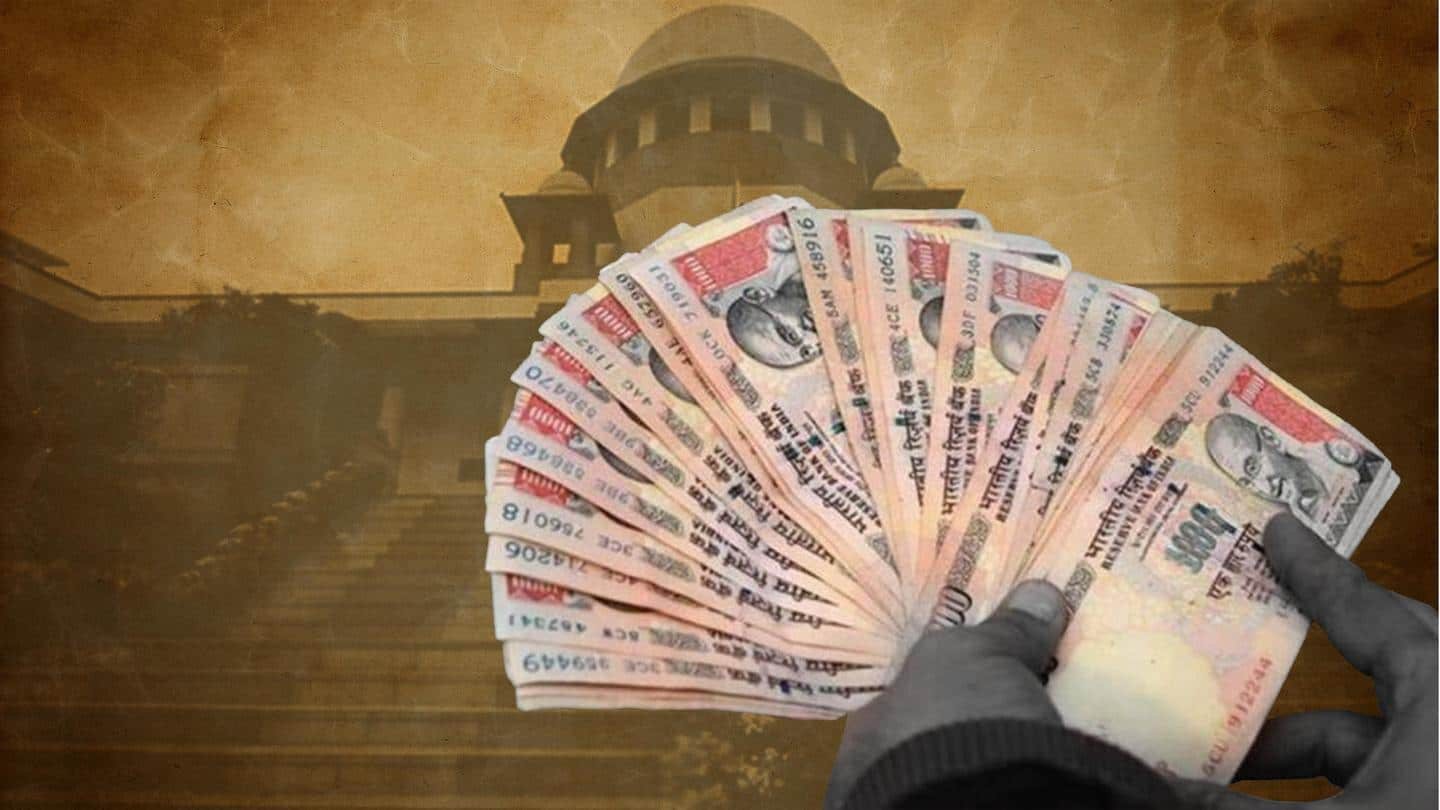
SC to examine demonetization exercise, asks affidavits from Centre, RBI
What's the story
The Supreme Court (SC) said on Wednesday that while it acknowledged the ambit of the judicial review of State policies, however, it will examine the Narendra Modi-led government's 2016 decision to demonetize currency notes.
Stating that the Constitution Bench was answerable to the plea filed to check if the move was a mere academic exercise or had borne any positive results.
Context
Why does this story matter?
The Centre announced demonetization in 2016 claiming it will eliminate counterfeit currency from the country, along with terrorist and Naxalite funding. However, official numbers show the opposite.
According to government data submitted in the Rajya Sabha, fake Rs. 500 notes in circulation grew by over 197 times since 2016.
In addition, counterfeit Rs. 2,000 notes increased from 638 to 8,798 in 2020-21.
Information
File comprehensive affidavit on petitoners' arguments: SC to Centre, RBI
The apex court asked the Centre and Reserve Bank of India (RBI) to file a comprehensive affidavit on the decision of demonetizing currency notes of denominations Rs. 500 and Rs. 1,000.
The five-judge bench headed by Justice SA Nazeer said it knows where the "Lakshman Rekha" or limit is but was bound to evaluate the manner in which the move was carried out.
Details
Submit documents from RBI meetings before announcement: SC
Attorney General R Venkataramani and Solicitor General of India, Tushar Mehta repeatedly asserted that the matter had become academic in the last six years.
The court said that to declare the exercise as academic, non-academic or beyond the purview of judicial review, it needs to examine the matter.
The bench asked for the documents from RBI meetings before the announcement to be produced.
Section 26(2)
RBI Act Section 26(2) doesn't grant authority to cancel denomination
The bench asked for the affidavit in response to the petitioners' arguments, especially on Section 26(2) of the RBI Act not authorizing the Centre to completely demonetize particular denominations.
The petition argues that Section 26(2) only allows the Centre to cancel currency notes of a certain series and not the entire denomination.
The case will be next heard on November 9.
Definition
What is the Demonetization Act of 1978?
The High Denomination Bank Notes (Demonetization) Act, 1978 was passed to demonetize certain high denomination bank notes in the public interest to check the illegal transfer of money facilitated by high denominations which is harmful to the economy.
Arguments
Court's time shouldn't be wasted on academic matters: Solicitor General
Venkataramani said that unless the High Denomination Bank Notes (Demonetization) Act, 1978 is challenged properly, the issue would remain academic.
Appearing for the Centre, Mehta argued that the court's time shouldn't be "wasted" on academic matters.
Representing the petitioner, senior lawyer Shyam Divan said Mehta's words were surprising as the earlier bench had observed that these cases must be reviewed by a constitutional bench.